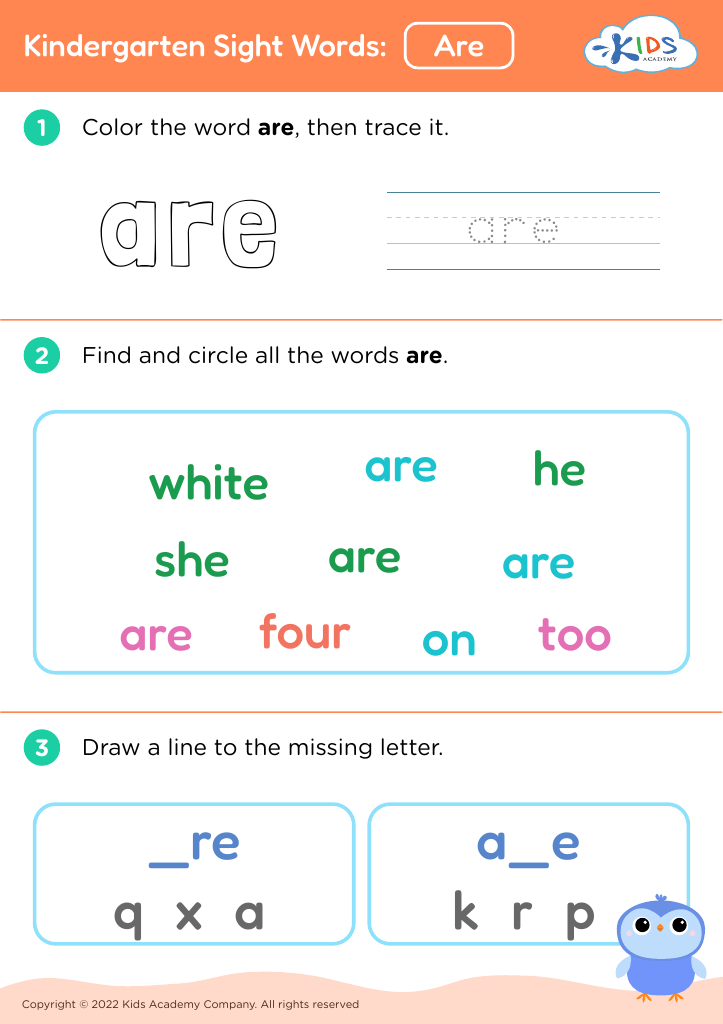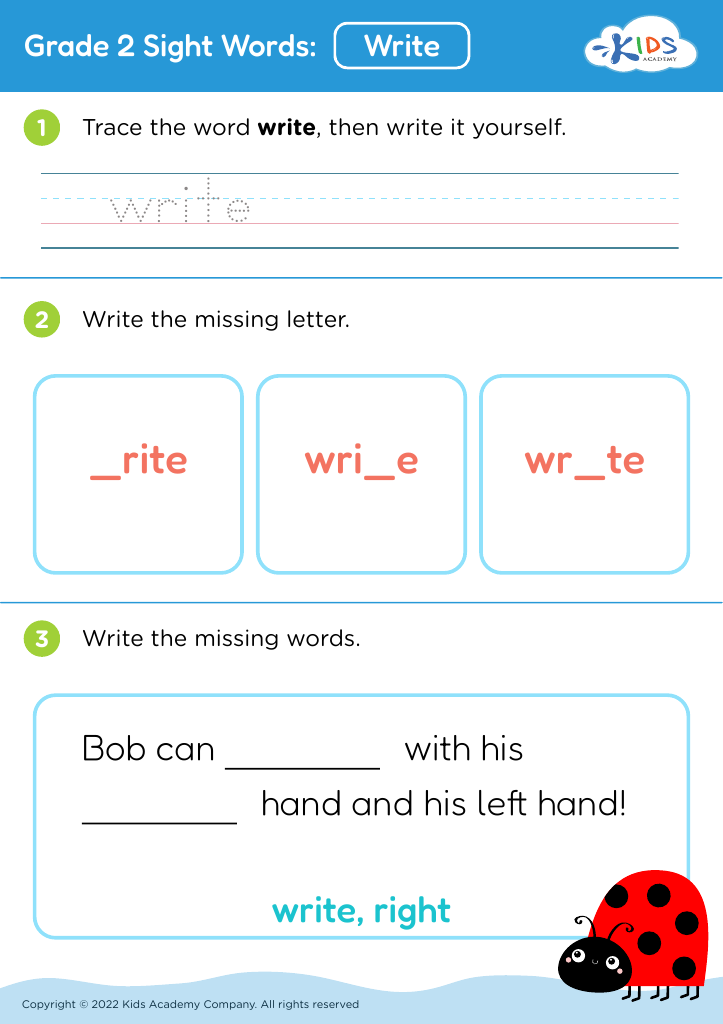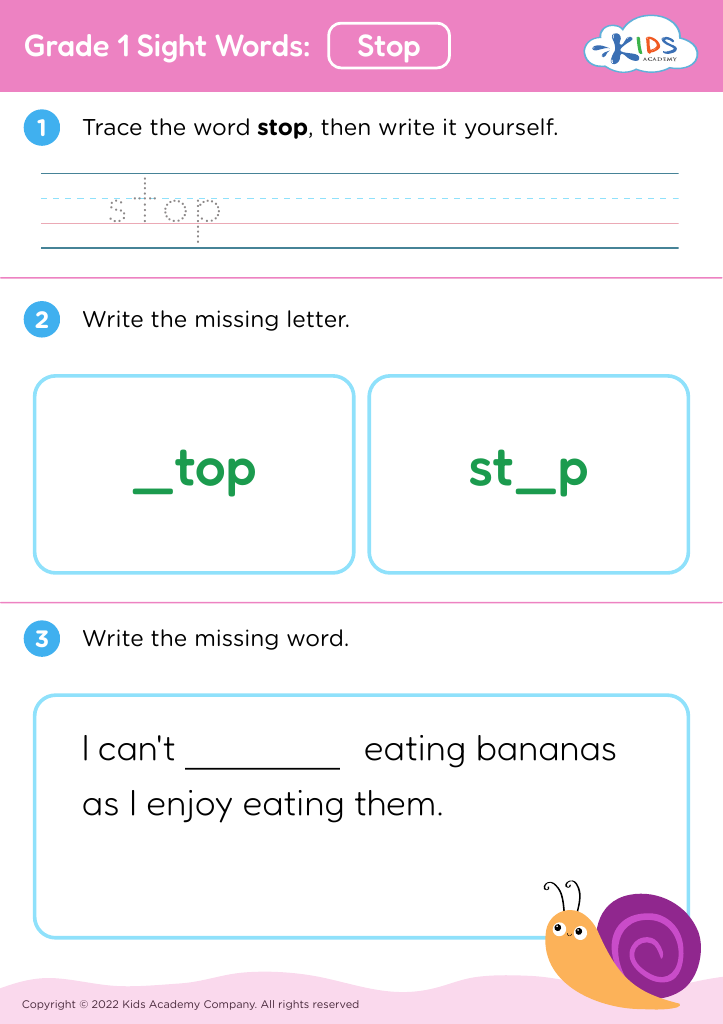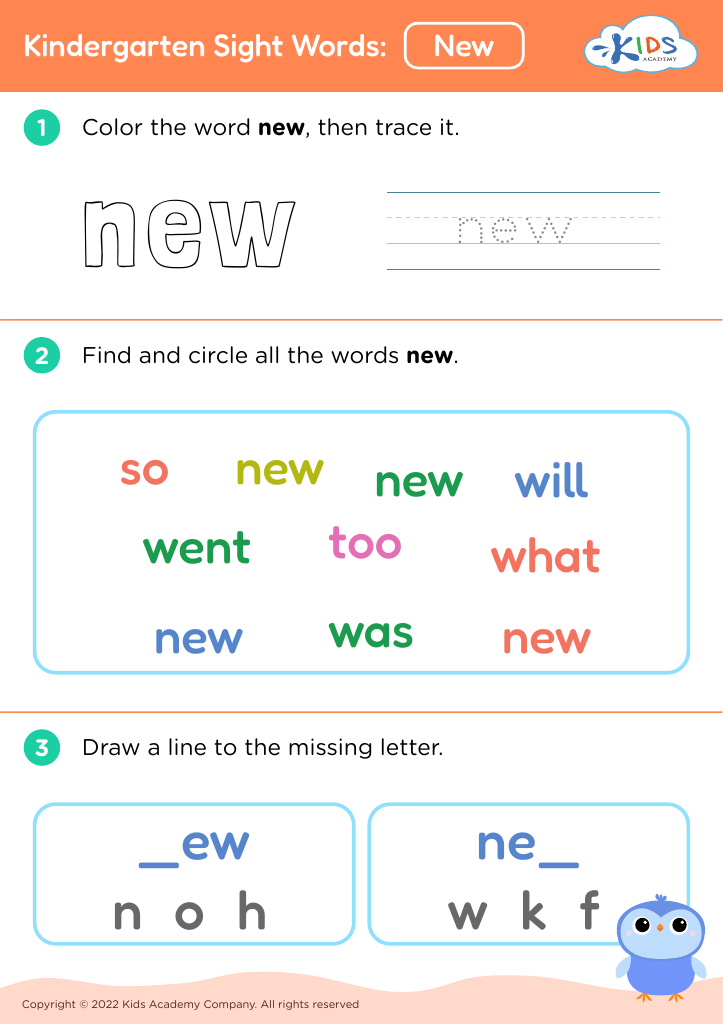Basic Addition Skills Building Vocabulary Worksheets for Ages 6-8
6 filtered results
-
From - To
Discover our engaging Basic Addition Skills Building Vocabulary Worksheets, specially designed for children aged 6-8. These worksheets seamlessly blend math and language learning, providing young learners with the tools to strengthen their addition skills while enhancing their vocabulary. Each activity creatively introduces essential mathematical concepts, fostering critical thinking and problem-solving abilities. Ideal for both classroom settings and home study, our resources make learning addition fun and interactive. Watch your child build confidence as they explore numbers and vocabulary through colorful, age-appropriate exercises. Equip your child for academic success and a lifelong love of learning with our thoughtfully crafted worksheets today!
Basic addition skills are fundamental to a child's development and set the groundwork for future mathematical understanding. For children aged 6-8, mastering addition not only enhances their confidence in math but also fosters critical thinking and problem-solving abilities. By cultivating these skills at a young age, children are better equipped to tackle more complex concepts in later grades, ensuring smooth progress through their education.
Building vocabulary around math concepts empowers children to articulate their thought processes and understand mathematical terminology, fostering a deeper comprehension. When children can discuss addition using appropriate language—like sums, addends, and total—they develop a richer conceptual framework. This language development is essential for communicating mathematical ideas and collaborating with peers in both classroom discussions and group activities.
Additionally, involving parents in this process can create a supportive learning environment. When parents engage in conversations about addition and related vocabulary during everyday activities, they reinforce important concepts and demonstrate that math is not merely an academic subject, but an integral part of daily life.
In summary, prioritizing basic addition and its related vocabulary is essential for equipping children with the skills they need to thrive academically and grow in confidence.





























